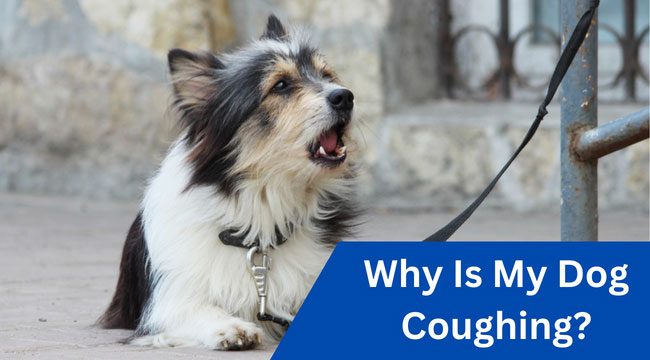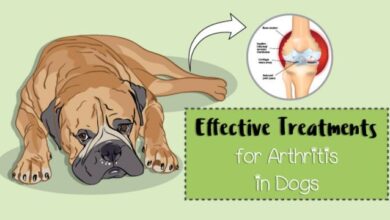
If you’re a dog owner, you may have noticed your dog coughing from time to time. While occasional coughing is normal, a persistent, deep, dry, honking cough could be a sign of kennel cough or tracheobronchitis. Kennel cough is a highly contagious disease caused by a bacterium or viruses and is often contracted in places where dogs gather, such as boarding and doggy daycare facilities. Although it typically causes only mild illness and discomfort, it can lead to serious complications like pneumonia or chronic bronchitis. If you suspect your dog may have kennel cough, it’s essential to seek veterinary care promptly.
There are many different factors that can cause a dog to cough, and some of them can be quite serious. As a responsible pet owner, it’s important to understand what might be behind your dog’s cough and how you can help them feel better. In this article, we’ll take a closer look at some of the most common causes of coughing in dogs and what steps you can take to address this issue.
Types of Dog Cough
When it comes to identifying the cause of your dog’s cough, understanding the different types of coughs is an important first step. Here are some common types of dog coughs and what they may indicate:
- Deep, dry, hacking cough: This type of cough often suggests an irritation in the throat, such as from post-nasal drip or allergies. It may also indicate a respiratory infection, such as bronchitis.
- High-pitched, gagging cough: This type of cough may be caused by something stuck in your dog’s throat, such as a piece of food or a toy. It may also indicate tracheal collapse, a condition where the cartilage rings in the trachea weaken and cause the airway to collapse.
- Wet, phlegmy cough: This type of cough typically indicates a respiratory infection, such as pneumonia, or heart disease.
- Deep, honking cough: This type of cough is often associated with kennel cough, a highly contagious respiratory infection that is caused by a combination of viruses and bacteria.
- Coughing in sleep: If your dog only coughs while sleeping, it may indicate a heart condition or congestive heart failure.
It’s important to note that each dog is different, and the sound of their cough may vary slightly. Therefore, it’s important to pay attention to the duration and frequency of your dog’s cough, as well as any other accompanying symptoms, such as fever or loss of appetite. Describing the sound of your dog’s cough to your veterinarian can help them diagnose and treat the underlying cause of the cough. If you suspect that your dog may have a contagious illness, such as kennel cough or canine influenza virus, it’s important to inform your veterinarian and take appropriate precautions to prevent the spread of the disease.
Causes of Dog Coughing
Coughing in dogs is a common symptom that can be caused by a variety of factors. As a responsible pet owner, it is essential to understand the different causes of coughing in dogs and the treatment options available to alleviate their discomfort. Here are some of the most common causes of coughing in dogs:
1. Sore Throat
If your dog is experiencing a high-pitched, gagging cough, it could indicate that there is something irritating their upper airway. This could be caused by an infection, a blockage, or even a foreign object stuck in their throat. If your dog has a sore throat, it could be due to tonsillitis or infections of the mouth or sinuses. If there is a foreign object present, it can be very dangerous and may prevent your dog from being able to breathe or swallow properly. If you suspect that your dog has a foreign object in their throat, it is important to seek immediate veterinary attention as this could be life-threatening.
2. Infections
Infections caused by viruses, bacteria, fungi, and parasites can all lead to coughing in dogs. These infectious agents can invade a dog’s upper respiratory tract, lung tissue, airways, or a combination of these areas, resulting in various respiratory conditions such as pneumonia, bronchitis, or bronchopneumonia. It is important for pet owners to be aware of these potential causes of coughing in dogs, as prompt diagnosis and treatment can help prevent serious health complications.
- Kennel cough: Kennel cough is recognized as the foremost infectious cause of coughing in dogs. This respiratory disease can arise from the presence of various types of viruses and bacteria, acting either individually or in tandem. As an airborne illness, it can easily spread in environments where dogs are frequently in close proximity, such as kennels, daycare facilities, or dog parks. Although kennel cough typically resolves on its own with time, veterinary intervention may be necessary in certain cases to help alleviate severe symptoms or prevent secondary infections.
- Canine influenza virus: The incidence of canine influenza virus (CIV) is on the rise in the United States, and it can cause several clinical manifestations, including coughing, fever, and nasal discharge. This respiratory illness is highly contagious and can spread rapidly among dogs, especially in crowded places like kennels, boarding facilities, or dog shows. Timely diagnosis and treatment of CIV is crucial to prevent the disease from progressing to more severe complications, such as pneumonia or bronchitis. Pet owners should consult with their veterinarian if they suspect their dog has been exposed to CIV or is showing any signs of respiratory distress.
- Lungworms: Lungworms are a type of parasitic worm that can cause severe respiratory distress in dogs. Unlike heartworms, which are more common, lungworms infect the pulmonary artery and right heart ventricle in dogs. These worms can cause a persistent cough as well as other symptoms, such as lethargy, weight loss, and difficulty breathing. Dogs can become infected by consuming prey that is carrying the parasite, which then travels through the intestines, bloodstream, and ultimately into the lungs. In addition, dogs can also contract lungworms by ingesting slugs or terrestrial snails that act as intermediate hosts for the parasite. If you suspect that your dog has lungworm, it is essential to consult with your veterinarian for diagnosis and treatment, which may involve deworming medication and supportive care to alleviate symptoms.
If your furry friend is coughing due to an infection, supportive care is crucial. Encourage your dog to rest, drink plenty of water, and eat nutritious food. For severe symptoms, cough suppressants can provide relief. Using a humidifier or nebulizer can also be helpful. You can take steps to make your home environment more conducive to healing, such as avoiding smoking, aerosol cleaners or sprays, and incense, and using an air purifier.
It’s important to note that antibiotics are only effective against bacterial infections. Viral infections often have to run their course, but other medications are available that work against certain types of fungi and parasites. In cases where lungworms are the cause of your dog’s cough, deworming medication like fenbendazole is necessary, along with advanced respiratory support for severely affected dogs.
3. Chronic Bronchitis
Chronic bronchitis in dogs is a condition that causes a dry, hacking cough that becomes worse during exercise or excitement. The inflammation of airways is the main cause of this condition, which narrows the passages in the lungs by producing mucus and swelling the lining. Chronic bronchitis is a progressive disease that worsens over time and requires regular management to ensure the best quality of life for your dog.
The primary focus of treatment for chronic bronchitis in dogs is managing the inflammatory response. Inhaled corticosteroids are the preferred anti-inflammatory medication for long-term management of the condition. These inhaled medications target the lungs directly and do not cause the same side effects as oral steroids or injectable formats, such as excess urination, aggression, or lethargy. Fluticasone proprionate (also known as Flovent HFA and Flixotide HFA, GSK) is one of the commonly prescribed inhaled steroids.
Inhaled bronchodilators, such as salbutamol and albuterol, may also be prescribed in cases of respiratory distress to open constricted airways. However, these short-acting bronchodilator medications should not be used as the only therapy, as they do not treat the underlying inflammation. In some cases, a long-acting inhaled bronchodilator may be prescribed in combination with an inhaled steroid. An example of this is Advair HFA (GSK), which includes the long-acting bronchodilator salmeterol and the inhaled corticosteroid fluticasone.
To administer these inhaled medications, you can use a device like the AeroDawg* Chamber, which captures and holds the medication until your dog inhales it. Chronic bronchitis is a lifelong condition that needs regular management to minimize symptoms. It’s essential to keep administering medication as prescribed by your veterinarian, even if there are no symptoms, to reduce inflammation and prevent progressive lung damage.
4. Lung Problems
A wet, phlegmy cough in dogs can be a sign of a lower airway or lung problem. This type of cough sounds like there is fluid in the lungs, and it can be heard even when the dog is not coughing. This is a serious symptom that requires immediate veterinary attention. You should contact your veterinarian and schedule an appointment as soon as possible.
Pneumonia is a common cause of a wet cough in dogs. Puppies and senior dogs with weakened immune systems are more susceptible to developing pneumonia. The condition can be caused by bacteria, viruses, parasites, fungi, or inhalation of foreign material such as toxins or vomit. If left untreated, pneumonia can lead to severe respiratory distress and other complications. Therefore, it is crucial to seek prompt veterinary care if your dog has a wet, phlegmy cough.
5. Allergies
Allergies occur when a dog’s immune system reacts excessively to certain substances in the environment. Common allergens include dust, pollen, certain plants, smoke, other animal dander, food, insects, and even human dander. When a dog is repeatedly exposed to these substances, their immune system can become overly sensitive and react excessively to future exposures.
Allergies can cause a range of symptoms, including itching, sneezing, wheezing, runny nose/eyes, vomiting, diarrhea, and coughing. Allergic coughing is typically caused by inflammation in the airways and lungs.
Treatment for allergies depends on the underlying cause and severity of the symptoms. It may include environmental changes, such as using air purifiers and humidifiers and eliminating allergens from the dog’s diet or home environment. In more severe cases, treatment may include bronchodilators to open the airways, anti-inflammatory medications such as steroids, antibiotics, and stronger immunomodulatory medications such as cyclosporine.
6. Tracheal Collapse
Tracheal collapse is a condition that affects toy breeds more often than other dog breeds. A honking cough that sounds like a goose is one of the most common signs of tracheal collapse. This cough can get worse when your dog pulls against their collar or during exercise in hot, humid weather. Obese dogs are also at higher risk of developing tracheal collapse. It’s important to note that this condition can be life-threatening if left untreated, so it’s crucial to seek veterinary care if you suspect your dog has tracheal collapse.
7. Reverse Sneezing
Sometimes dogs make a strange sound that seems like a cough, but it’s actually a “reverse sneeze”. This occurs when something irritates the back of a dog’s nasal passages, causing them to inhale rapidly and make a honking noise.
While a reverse sneeze is not usually a serious issue, it can be a sign of an underlying problem if it becomes frequent or severe. This could indicate postnasal drainage, inflammation, foreign material or parasites in the nasal passages. If you notice nasal discharge or a change in your dog’s facial symmetry, such as bulging eyes or sinuses, it’s important to seek veterinary care for diagnosis and treatment.
8. Heart Disease
There are various types of heart disease that can cause dogs to cough, such as mitral valve endocardiosis (degeneration), dilated cardiomyopathy, and congestive heart failure.
Your veterinarian may prescribe a combination of medications depending on the type of heart disease your dog has. These medications are aimed at improving the efficiency of the heart, normalizing blood pressure, and reducing the buildup of abnormal fluid. They may include drugs such as pimobendan, ACE inhibitors, or diuretics.
In some cases, other interventions such as surgery or pacemaker placement may be necessary to manage the heart disease and alleviate the coughing. It is important to work closely with your veterinarian to develop an appropriate treatment plan for your dog’s specific condition.
9. Collapsing Trachea
Toy and small breed dogs are at a higher risk of developing a condition called tracheal collapse, where the cartilage rings that support their trachea weaken and collapse, causing chronic coughing that sounds like a honking goose. This is often triggered by stress, excitement, exercise, or changes in temperature.
To manage tracheal collapse, veterinarians may prescribe medications such as bronchodilators, anti-inflammatories, cough suppressants, and antibiotics to treat any secondary infections. Environmental modifications like using humidifiers, avoiding irritants like smoke, aerosol sprays, and incense, and installing air purifiers can also help reduce symptoms.
Surgery may be necessary in severe cases to improve the dog’s quality of life and reduce the severity of symptoms.
10. Pulmonary Hypertension
Pulmonary hypertension is when there is high blood pressure in the lungs, which makes it difficult for your dog to get enough oxygen. This can cause coughing, fainting, shortness of breath, fluid buildup in the abdomen, and heart failure.
Chronic lung disease, heartworm disease, and pulmonary thromboembolisms can cause pulmonary hypertension. To diagnose this condition, a veterinarian will use an echocardiogram to measure the pulmonary artery pressure.
Unfortunately, there is no cure for pulmonary hypertension, and treatment is typically focused on easing symptoms. Medications like sildenafil (Viagra) and other cardiac medications may be prescribed for life to manage this condition.
11. Heartworm Disease
Dogs may develop a cough due to heartworms, a parasite transmitted by mosquitoes. When an infected mosquito bites a dog, it transmits the larvae of the parasite into the dog’s bloodstream. The larvae then mature into adult worms, which reside in the heart and lungs and cause inflammation, coughing, and potentially fatal damage.
Preventive medication is the best way to keep dogs from getting heartworms. Treatment for dogs already infected with heartworms is expensive, long, and often painful. It involves multiple injections and carries the risk of fatality. However, untreated heartworm disease can also be fatal, making it crucial to seek treatment for infected dogs.
12. Foreign Objects Stuck in the Throat/Airways
Dogs can accidentally inhale foreign objects or material that can get stuck in their airways, causing respiratory problems. When coughing doesn’t help remove the material, a veterinarian may need to use an endoscope or perform surgery to remove it.
It may be surprising, but even a small blade of grass can cause serious respiratory problems. Certain types of grass found mainly in the western US can produce sharp blades or clusters that can penetrate a dog’s skin and migrate to their lungs or chest cavity, leading to coughing. In severe cases, this can cause conditions like pneumonia, lung abscesses, pneumothorax, or pyothorax.
13. Laryngeal Paralysis
When dogs have laryngeal paralysis, they cannot open their larynx fully due to weakened nerves that control the surrounding muscles. This can lead to coughing, noisy breathing, and shortness of breath. Surgery can help improve breathing, but it can also increase the risk of aspiration pneumonia, which is another cause of coughing.
14. Cancer
Cancer can affect the lungs, respiratory tract, heart, or surrounding tissues in dogs. Coughing can be an early symptom of cancer, and treatment may include surgery, chemotherapy, radiation, or palliative care.
15. Rat Poison
Ingesting rat poison can cause a dog to bleed into their chest cavity, leading to coughing. Immediate medical attention is crucial, and the dog may need a blood transfusion and vitamin K therapy until the effects of the poison lessen. It is important to use humane methods of rodent control and avoid using rat poison around dogs.
16. Esophagitis
Esophagitis is inflammation of the esophagus caused by stomach fluid moving up and irritating the lining. It can be caused by certain foods, gastrointestinal upset, prolonged anesthesia, and some medications. Symptoms include drooling, decreased appetite, lip smacking, regurgitation, and coughing due to pain/inflammation. Treatment includes antiacids, mucosal protectants, and promotility agents. Severe cases may require hospitalization and feeding tubes.
17. Tumors in the Larynx and Trachea
The larynx and trachea are two important structures that help dogs breathe and produce sound. However, tumors or abnormal growths can sometimes develop in these areas, which can make it difficult for the dog to breathe, eat, or drink.
Tumors in the larynx or trachea are not very common, but they can be serious. Some of the most common types of tumors include chondromas, chondrosarcomas, osteochondromas, and squamous cell carcinomas. These tumors can grow and spread, potentially affecting other parts of the body.
Treatment usually involves surgical removal of the tumor, followed by radiation therapy and/or chemotherapy. However, the type of treatment will depend on the size and location of the tumor, as well as the dog’s overall health. It is important to catch these tumors early in order to have the best chance of successful treatment.
18. Aspiration Pneumonia
Aspiration pneumonia is a condition that occurs when dogs inhale food, water, vomit, or regurgitated matter into their lungs. This can cause bacterial growth in the lungs, leading to inflammation, coughing, trouble breathing, and decreased oxygen levels. Treatment for aspiration pneumonia includes antibiotics to treat the bacterial infection, addressing the underlying cause of the condition, and hospitalization in severe cases.
19. Inhaling Indoor Irritants
Dogs can cough due to exposure to indoor irritants like dust mites, mold, and secondhand smoke. Although you may not react to these irritants, your dog’s stronger sense of smell can make them more sensitive to these triggers. Dogs with underlying respiratory conditions are more susceptible to coughing when exposed to irritants.
20. Obesity
Extra weight in dogs can put pressure on the respiratory tract, leading to coughing. This condition is called Pickwickian syndrome or obesity hypoventilation syndrome. The only solution for this is weight loss, and your vet can help you develop a safe and effective weight loss plan for your dog.
21. Lung Lobe Torsion
Lung lobe torsion is a condition where a dog’s lung rotates and twists, blocking the airway. This can cause coughing, pain, fever, lethargy, and coughing up blood. While the exact cause of lung lobe torsion is not always known, it is more common in dogs with fluid in the chest, heart disease, or other underlying conditions. Certain breeds like Pugs, Yorkshire Terriers, Beagles, Miniature Poodles, and Afghan Hounds are more at risk for this condition.
Diagnosing the Cause of a Dog’s Cough
The first step in treating a dog’s cough is to determine the underlying cause. Your veterinarian will perform a complete physical exam and ask questions about your dog’s health history, travel, and preventive care. Depending on your dog’s unique situation, some combination of the following tests may be necessary:
- Blood chemistry panel to assess organ function
- Complete blood cell count to check for signs of infection or inflammation
- Serology to test for infectious diseases
- B-type natriuretic peptide (BNP) blood test to evaluate for heart disease
- Urinalysis to detect kidney problems or infections
- Fecal examination to screen for parasites or digestive issues
- Chest x-rays to look for signs of lung problems
- Echocardiography to assess heart function and structure
- Measurement of blood pressure to check for hypertension
- Electrocardiogram (ECG) to detect heart rhythm abnormalities
- Examination of fluid samples taken from the airways to identify infection or inflammation
- Upper gastrointestinal endoscopy to evaluate the esophagus and stomach lining
- Bronchoscopy to examine the trachea and major airways leading to the lungs
What To Do if Your Dog Is Coughing
If your dog is coughing, it’s important to take appropriate action. Avoid giving your dog any over-the-counter cough syrups that are meant for humans, as they can be harmful to your pet. Instead, if your dog is coughing excessively or displaying any of the following signs, seek immediate veterinary care:
- Coughing up blood: If your dog is coughing up blood, it could be a sign of a serious health issue and requires immediate veterinary attention.
- Nasal or eye discharge: If your dog has nasal or eye discharge, especially if it’s green or yellow, it could be a sign of an infection or other health issue.
- Heavy or rapid breathing: If your dog is breathing heavily or rapidly, it could be a sign of an underlying health issue.
- Protrusion of one or both eyes: If one or both of your dog’s eyes appear to be bulging, it could be a sign of a serious health issue.
- Change in facial symmetry: If your dog’s face looks strange or off, it could be a sign of an underlying health issue.
- Whistling sound when breathing: If your dog makes a whistling sound when breathing, it could be a sign of an underlying respiratory issue.
- Change in bark noise: If your dog’s bark sounds different than usual, it could be a sign of an underlying health issue.
- Exercise intolerance: If your dog gets winded or tired more easily than usual, it could be a sign of an underlying health issue.
- Lethargy: If your dog is unusually tired and lacks energy, it could be a sign of a health issue.
- Difficulty breathing: If your dog is struggling to breathe or has shortness of breath, it could be an emergency situation that requires immediate veterinary care.
- Loss of appetite: If your dog is not interested in food, it could be a sign of an underlying health issue.
- Vomiting or diarrhea: If your dog has persistent vomiting or diarrhea, it could be a sign of a digestive or other health issue.
- Weight loss: If your dog is losing weight without any apparent reason, it could be a sign of an underlying health issue.
Treating Dog Cough
When it comes to treating your dog’s cough, it’s important to remember that there is no one-size-fits-all approach. The treatment plan will vary based on the underlying cause of the cough. Before any treatment can begin, your veterinarian will need to diagnose the cause through a combination of physical exams and diagnostic tests.
During the physical exam, the vet will check your dog’s heart and lungs, take their temperature, and evaluate their overall health. Diagnostic tests such as bloodwork, X-rays, and ultrasounds may also be necessary to determine the underlying cause.
Once the vet has diagnosed the cause, they will create a customized treatment plan tailored to your dog’s specific needs. This may include medications, such as antibiotics or steroids, to alleviate symptoms and treat the underlying condition. In some cases, lifestyle changes or dietary modifications may also be recommended.
It’s important to follow your veterinarian’s instructions carefully and to keep all follow-up appointments to ensure that your dog’s condition is improving. Remember, early detection and treatment can often lead to a better prognosis and a faster recovery for your furry friend.
The Importance of Seeking Veterinary Attention for Your Coughing Dog
If your furry friend is coughing, it is important to call your veterinarian. While some causes of dog cough can be treated, all require medical attention. Early detection is key in improving your dog’s prognosis and helping them feel better. This is especially important with serious illnesses like heartworm disease, distemper, and heart disease. By getting your dog in to see your veterinarian as soon as possible, you can ensure they receive the best possible care and treatment for their cough.
Ensuring Successful Follow-Up Treatment and a Smooth Recovery for Your Pet
It is crucial to carefully measure and confirm the dosage of all medications before giving them to your dog. Giving the wrong amount of medication can be dangerous and even fatal. In fact, overdosing on medication is one of the leading causes of death in household pets.
Throughout the treatment period, it’s important to keep in touch with your veterinarian and keep them informed about how your dog is responding to the treatment. This includes any improvements or worsening of your dog’s condition.
In some cases, follow-up examinations may be necessary so that your veterinarian can assess your dog’s progress and adjust the treatment plan accordingly. Long-term therapy may also be necessary for some dogs to fully recover from their illness. By following up with your veterinarian and staying vigilant about medication dosages, you can help ensure your dog makes a full recovery.



